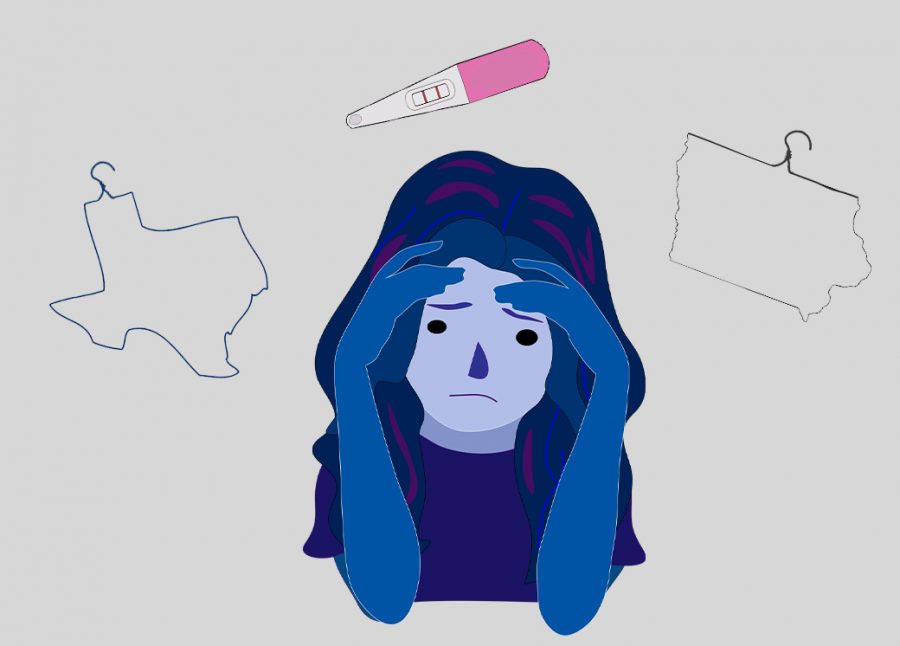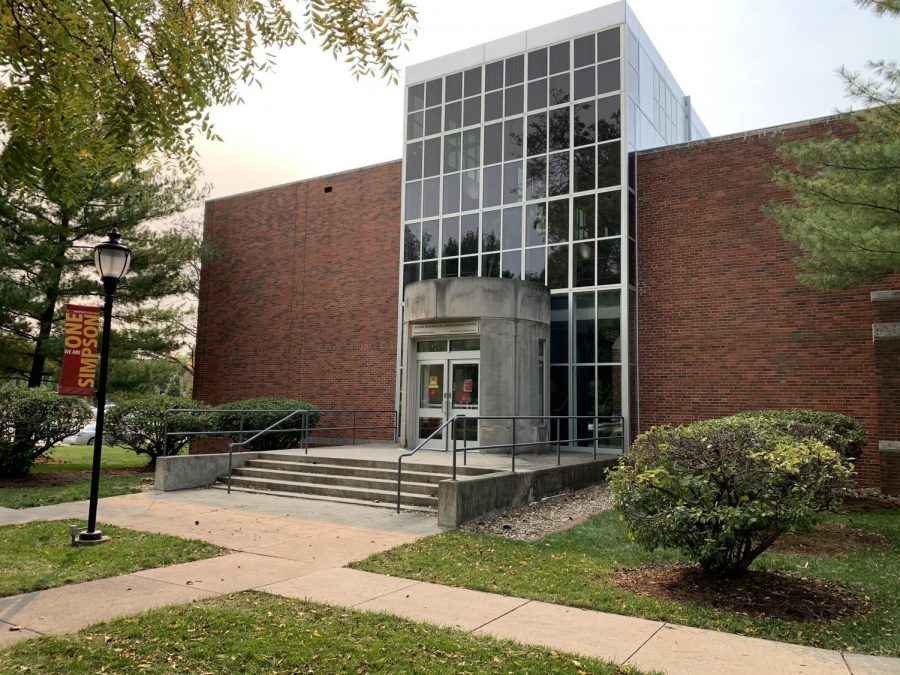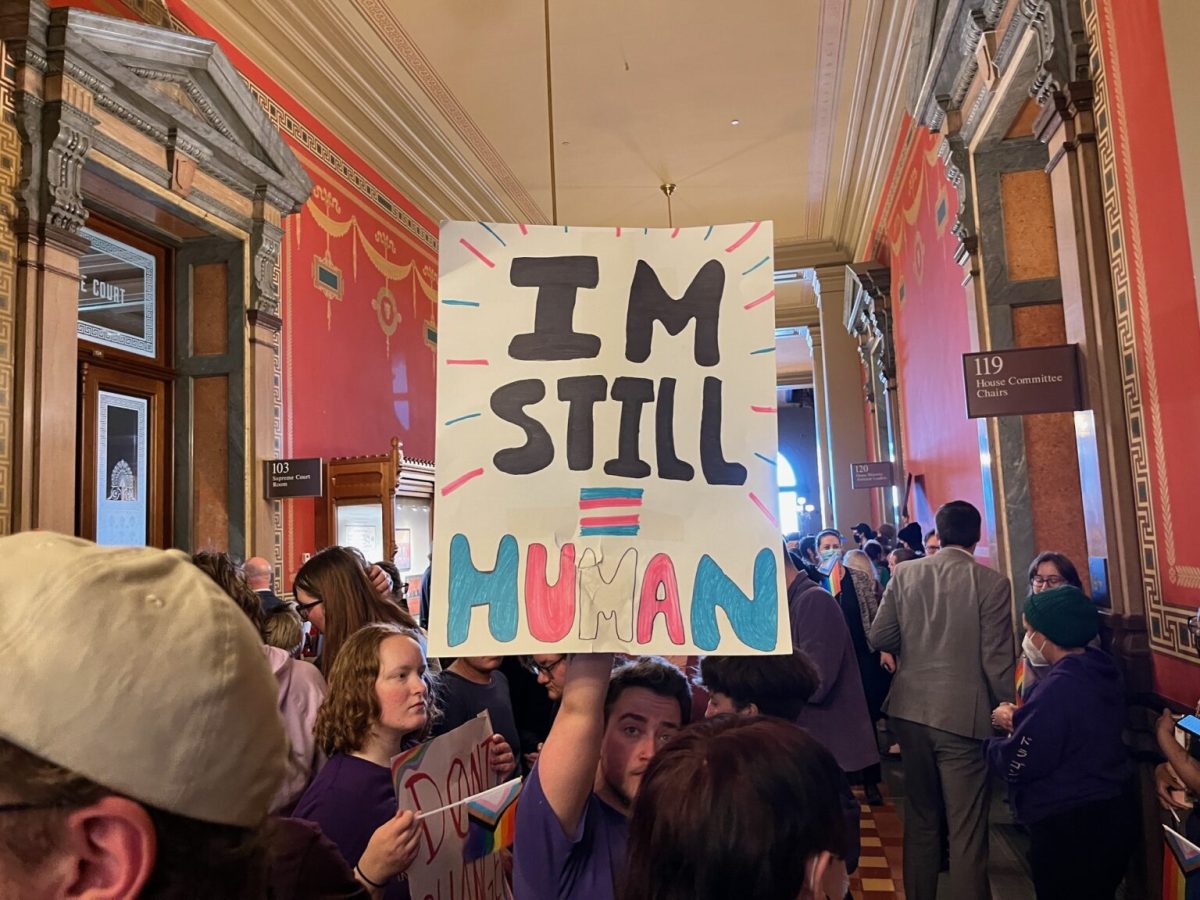Texan anti-abortion law causes outrage among students
Following the passing of Texas’ new restrictive law, many are worried about how they will access safe abortions.
September 15, 2021
A Texas law enacted on Sept. 1 banning most abortions after around six weeks of pregnancy has many Iowans and Simpson College students alike concerned a similar ruling may be enacted in Iowa and around the country.
The law, also known as the heartbeat bill, bans abortion as soon as a heartbeat is detected from the fetus. Iowa attempted to pass a similar law in 2018 that was struck down in the Iowa Supreme Court after being declared unconstitutional. However, 60 Iowan legislators are now pushing for the Iowa Supreme Court to overturn this ruling after Texas’ new law was found constitutional.
Junior Mollie Hinkle said she finds the Texas abortion law appalling and based on outdated expectations of those with uteruses.
“It’s a clear representation of the archaic idea that people with uteruses’ only purpose is to reproduce – help to promote the human race,” Hinkle said. “This view excludes the fundamental idea that no matter what body parts someone may be born with, their values and desires as human beings are above all.”
The Texas law relies on private citizens to sue abortion providers and anyone who helps a woman obtain an abortion. Anyone who successfully sues could be awarded at least $10,000. Ultimately, the law creates a lot of uncertainty for patients and abortion providers, especially on how to access a safe abortion, a problem Hinkle recognizes.
“If someone does not want to carry a pregnancy to term, we are doing that person, as well as their fetus, a large disservice by denying them access to a safe abortion,” Hinkle said. “What matters more than the quantity of life is the value of life. These people are grasping on whatever they can that allows them to control women, and this won’t be the last thing if action is not taken.”
The U.S. Supreme Court voted against blocking the implementation of the restrictive Texas law in a 5 to 4 decision. This has advocates of reproductive rights worried that the landmark decision, Roe v. Wade, the Supreme Court’s ruling in favor of the right to choose to have an abortion, might be overturned. In July, Iowa Gov. Kim Reynolds asked the U.S. Supreme Court to overturn Roe v. Wade.
Many pro-choice advocates claim the law places a bounty over the heads of abortion providers and others who aid in the abortion, even the person driving the patient to the medical procedure.
Senior Tatum Clayburn is one of many Simpson students who expressed their frustration with the bill on social media and thinks it unfairly targets people with a uterus.
“I think that individuals who don’t have a uterus shouldn’t be able to enact laws and restrictions upon those with a uterus,” Clayburn said. “Not to mention the fact that it takes two people to create a fetus. If they’re placing restrictions on those with a uterus, restrictions need to be placed upon those with sperm.”
According to the Guttmacher Institute, over 90 state laws that restrict access to abortion have been passed so far this year. In response to the Texas decision, Iowa lawmakers are asking the Iowa Supreme Court to overturn its 2018 ruling regarding Iowa’s heartbeat bill.
Currently, Iowa allows abortions up to 20 weeks into pregnancy.







